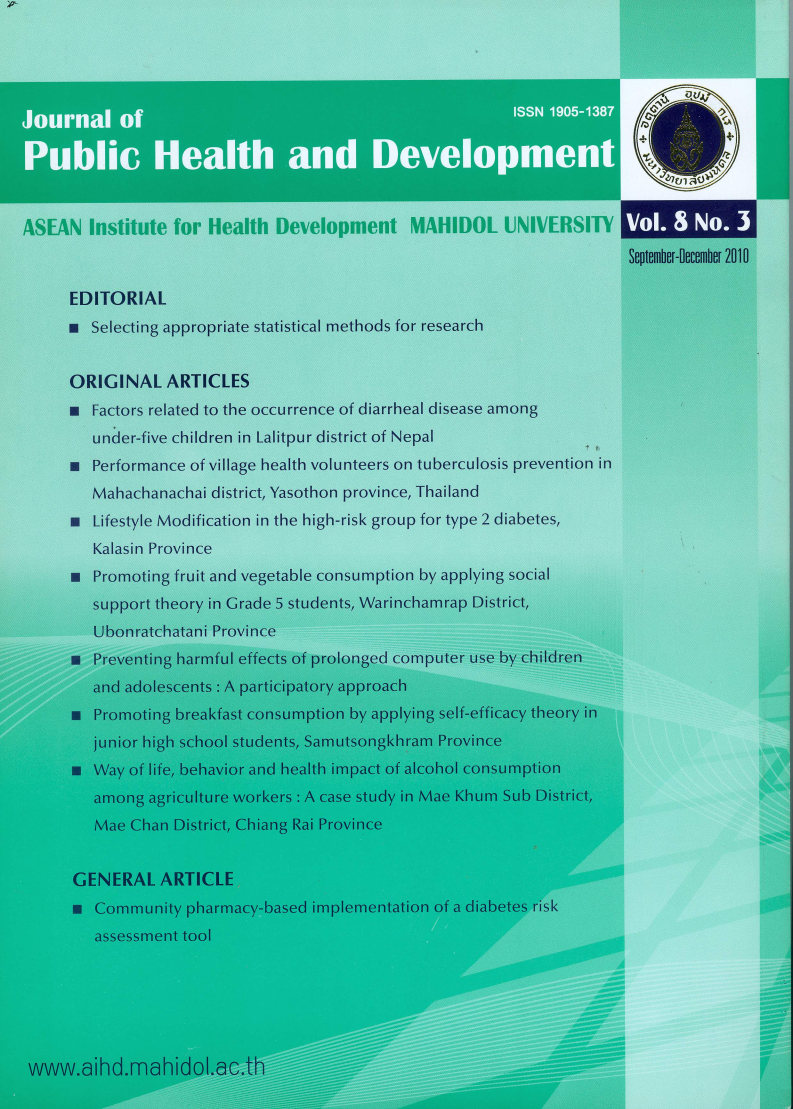Promoting breakfast consumption by applying self-efficacy theory in junior high school students, Samutsongkhram Province
Main Article Content
Abstract
This quasi-experimental research was designed to examine the effect of the promoting breakfast consumption program by applying self-efficacy theory in junior high school students from two schools in Samutsongkhram Province, were divided into an experimental group (n=42) and a comparison group (n=40). The study was 6 weeks. Data collected by self-administered questionnaires included breakfast eating behavior, knowledge on the importance of breakfast, perceived self-efficacy on having breakfast and the expectation of benefits from having breakfast. Statistics for data analysis included Paired t-test, t-test and Mc Nemar’s test.
The results of the intervention showed that the experimental group’s mean scores of knowledge on the importance of breakfast, perceived self-efficacy and the expectation of the benefits from having breakfast were significantly higher than the mean scores prior to the program and also higher than that of the comparison group (p-value < 0.001). The percentage of students who consumed daily breakfast during school day was increased from 47.6% to 78.6%. The findings suggested that it is important and necessary to encourage the “promoting breakfast consumption program” to adolescents, in addition to their classroom lesson.


